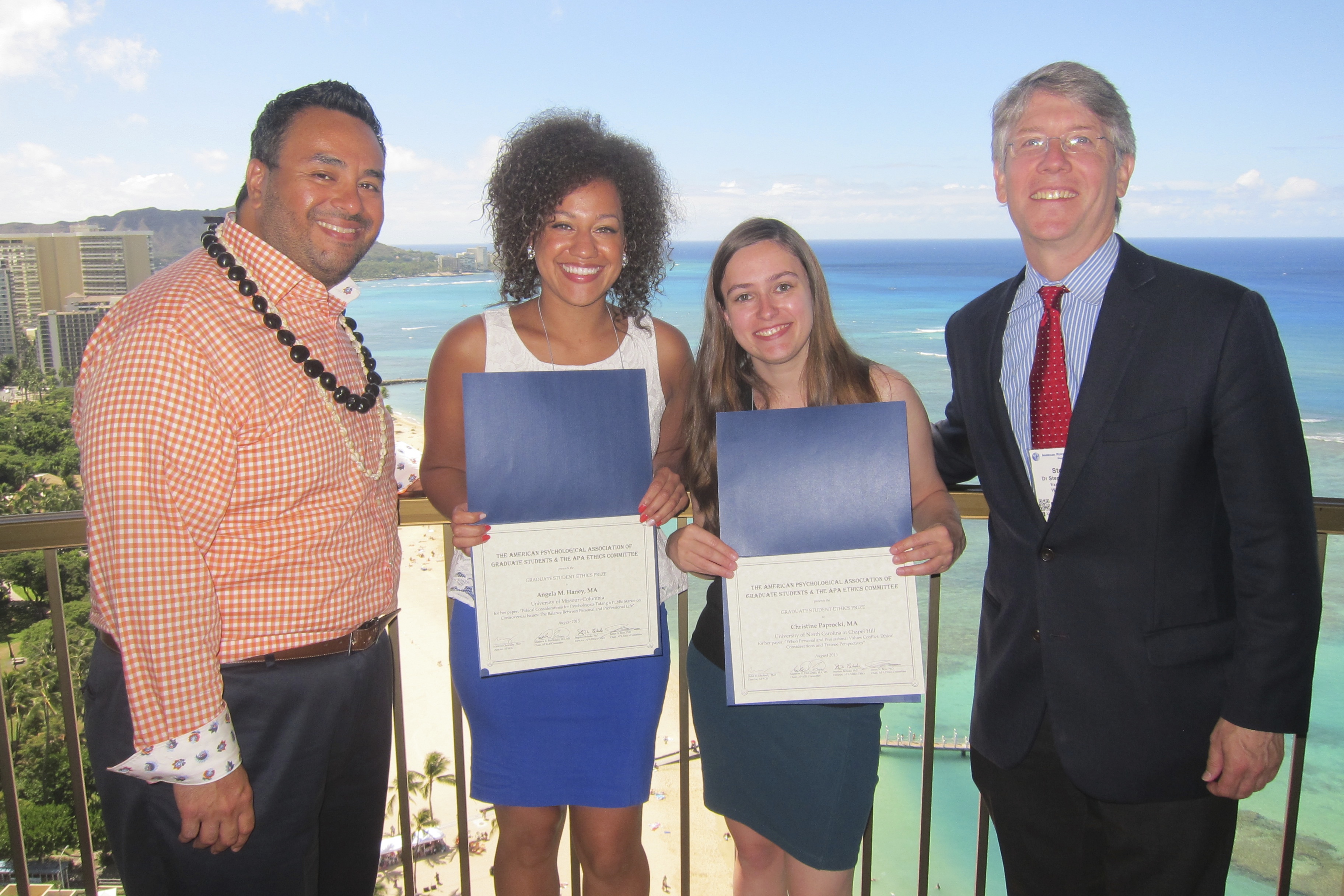In order to acknowledge all of the great psychology research APAGS members have conducted recently, we asked our funding recipients to share with us all of the important progress they have been able to accomplish with the support of the of APAGS and the APA Science Student Council (SSC).
In the upcoming months we will be showcasing outstanding students whose research was made possible with the help of APA and SSC funding. The following students have demonstrated the utmost passion and creativity that APA looks for in its members and we love to see how their personal interests are inspiring the entire psychological science community.
 Spike Lee: Mind over Matter
Spike Lee: Mind over Matter
“My colleagues and I have been exploring a number of quirky effects linking the mind and the body. What we consistently find is that social psychological processes are influenced by incidental bodily experiences that have no more than metaphorical relevance. For example,
- Literally smelling something fishy makes people suspicious and invest less money in a trust game
- After doing something unethical with their mouth, people want to rinse their “dirty mouth”; but after doing something unethical with their hands, people want to purify their “dirty hands”
- People can metaphorically “wipe the slate clean” — an antiseptic wipe is sufficient to eliminate the classic free-choice dissonance effect
In addition, a few years back when swine flu was all over the place, we did a couple of fun studies by walking around town, sneezing and coughing. That was enough to change how people wanted the government to spend a billion dollars. The logic wasn’t new but the effects were surprisingly strong, given that it was “just a sneeze.””
Logan Fiorella: Learning by Teaching: The Role of Expectations and Explanations
It is often said that the best way to learn something new is to teach it to someone else. My research aimed to explore this idea by testing the relative effects of preparing to teach and actually teaching on short- and long-term learning.
- In four experiments, college students studied a multimedia lesson on how a scientific process works with the expectation of later teaching or being tested on the material; some participants actually taught the material, whereas others only studied the lesson.
- Participants then completed a comprehension test either immediately or following a one-week delay… when tested following a one-week delay, only participants who actually taught the material experienced better learning outcomes.
These findings suggest that while preparing to teach leads to short-term learning benefits, the act of teaching is critical for long-term learning.
Michael Alosco: Where the Heart Is
 Early research of mine has examined the impact of cognitive function on activities of daily living in older adults with heart failure. Support from APAGS has provided the opportunity to expand upon this line of research to help better understand the association between cognitive function and functional independence in cardiovascular disease patients.
Early research of mine has examined the impact of cognitive function on activities of daily living in older adults with heart failure. Support from APAGS has provided the opportunity to expand upon this line of research to help better understand the association between cognitive function and functional independence in cardiovascular disease patients.
- For instance, recent work from our team suggest that heart failure patients may be at risk for unsafe driving and treatment non-adherence due to impairments in attention and executive function.
- In response to these findings, additional studies from our group have sought to identify possible mechanisms for cognitive impairment in persons with cardiovascular disease using advanced neuroimaging.

